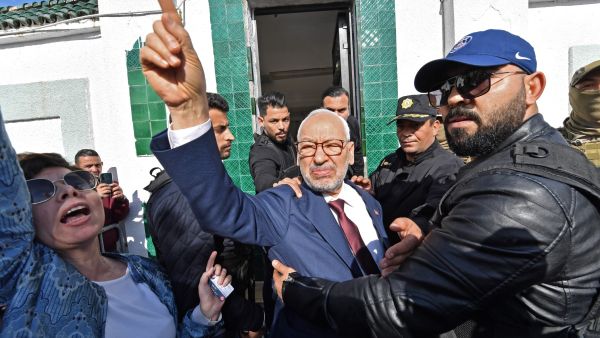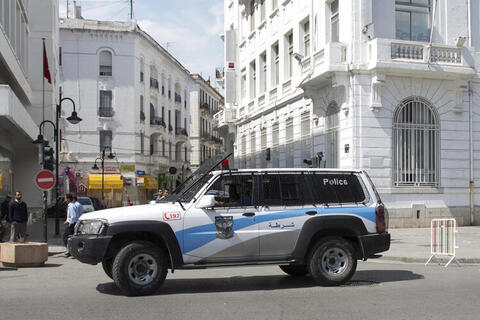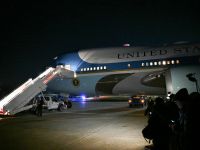Tunisia’s Ennahda movement has denied reports that a travel ban has been placed on its leader, Rached Ghannouchi.
In a statement, Ennahda said Ghannouchi, the speaker of the dissolved parliament, “did not receive any notification of such a decision (travel ban) against him."
Local media earlier reported that a Tunisian court had approved a travel ban on Ghannouchi and other politicians over the 2013 assassination of opposition figures Chokri Belaid and Mohamed Brahmi.
Tunisia’s Ennahda movement denied reports that a travel ban has been placed on its leader, Rached Ghannouchi https://t.co/oR5thIKptx pic.twitter.com/NjHyP9FzgO
— ANADOLU AGENCY (@anadoluagency) May 28, 2022
Belaid was shot dead outside his house on Feb. 6, 2013, triggering a political crisis in the North African country. Brahmi was assassinated that July 25.
Ennahda vehemently denies any link to the assassinations.
Ghannouchi “does not intend to travel abroad, despite the many invitations he received to participate in more than one international event, including the annual Davos Forum, in his capacity as Speaker of Parliament,” Ennahda said, adding that its legal office will look into the authenticity of the reports.
The movement warned against “a systematic process to distract public opinion from paying attention to real concerns and the reality of the political and economic crisis caused by the coup.”
It also protested "the continuous pressure on the judicial system” from President Kais Saied, which it said hampers the independence of the judiciary.
There was no immediate comment from Tunisian authorities on the reported travel ban.
In July 2021, Saied dismissed the government, suspended parliament, and assumed executive authority amid mounting public anger over economic stagnation and political paralysis. He later dissolved the parliament in March after lawmakers held a session to revoke his measures.
While Saied insists that his "exceptional measures" were meant to "save" the country, critics have accused him of orchestrating a coup.
This article has been adapted from its original source.









